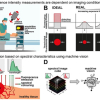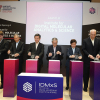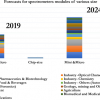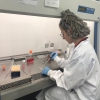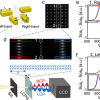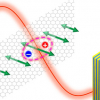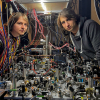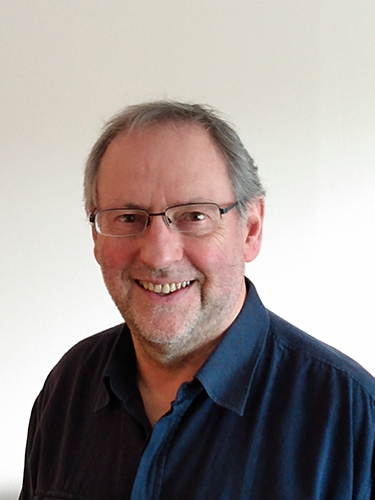
HORIBA Scientific has announced that David Birch has been awarded the 2020 Dennis Gabor Award by the Institute of Physics (IOP). Dr Birch is an Emeritus Professor of Photophysics at the University of Strathclyde and a founding Director of HORIBA Jobin Yvon IBH Ltd, one of the earliest corporate spin offs in Scotland. His contributions in the fluorescence sector included research on techniques, multi-disciplinary applications and developing instrumentation for measuring fluorescence lifetimes, including the TCSPC (Time-correlated Single-Photon Counting) technique.
The Dennis Gabor Medal, named for the inventor of holography and 1971 Nobel Prize winner, is awarded for distinguished contributions to the application of physics in industry.
As Chairman at IBH, Dr Birch pioneered TCSPC fluorescence lifetime spectroscopy and his recent research has focused on the application of fluorescence to molecular grand challenges at the biomedical interface. He championed the merger of IBH and HORIBA. He has published over 250 peer-reviewed journal articles, and his contributions to research and new products have been recognised through Fellowships of the IOP, the Royal Society of Edinburgh, the Royal Society of Chemistry and Visiting Chairs at Texas Christian University, Kyoto Institute of Technology, the Czech Technical University and the University of Madras. Presently he is co-founding Editor-in-Chief of IOP’s Methods and Applications in Fluorescence.
“I am very honoured to receive the award”, said Dr Birch. “It provides further evidence of HORIBA’s leadership in fluorescence and represents not only my success over many years but also that of many wonderful colleagues in HORIBA, IBH and the University of Strathclyde.”
“We are extremely proud of David’s accomplishments and recognition in the fluorescence community,” said Dr Sal Atzeni, Executive Vice President of HORIBA Scientific. “His work over many decades brought the techniques of fluorescence lifetime measurement and its applications to fundamental biophysical research to laboratories all over the world. Similar to the comparison of X-Ray to MRI, the fluorescence lifetime technique allows researchers to observe molecular properties and interactions on ultrafast timescales, critical to the understanding of protein/drug interactions, biophysics, materials science and photophysics. As HORIBA, we are very honoured to work with David and the entire IBH team. Congratulations, David, on this prestigious Award!”






